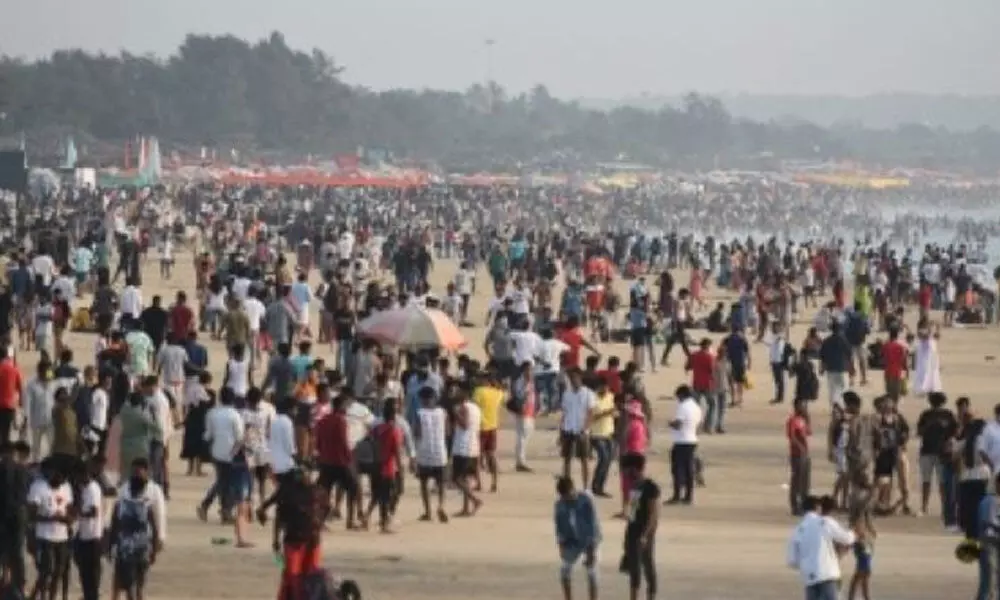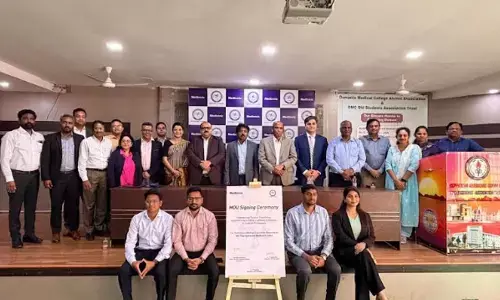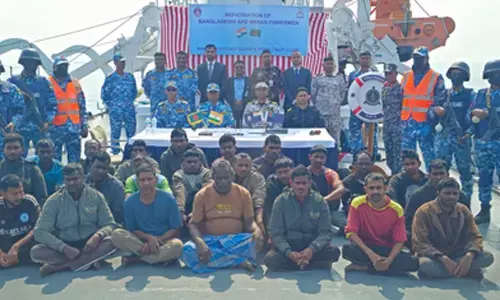Post lockdown, tourism rebooted along Goa's beaches -- and so did litter

Post lockdown, tourism rebooted along Goa's beaches -- and so did litter
The post Covid resurgence of tourism in Goa, one of the best known beach destinations in India, has brought a sigh of relief to the state's tourism industry stakeholders.
Panaji: The post Covid resurgence of tourism in Goa, one of the best known beach destinations in India, has brought a sigh of relief to the state's tourism industry stakeholders.
But a recent study conducted by multiple research agencies, has outlined just how the lifting of travel restrictions and resumption of mass tourism has led to copious quantities of garbage being dumped back on to the beaches and the seas alongside, with the increased footprint of locals as well as tourists on the state's eight popular beaches post lockdown.
"The quantification of litter found on eight selected Goa beaches (Morjim, Calangute, Miramar, Siridao, Baina, Velsao, Colva and Palolem) was undertaken during the beginning of lockdown (May 2020) and unlock (January 2021) periods suggests an increase in the litter quantity during unlock period when the Covid-19 lockdown restrictions on tourism are lifted, facilitating tourist inflow," the researchers noted.
The study was conducted under the supervision of Goa University's School of Earth, Ocean and Atmospheric Sciences by researchers from the Goa-based National Centre for Polar and Ocean Research (NCPOR), National Institute of Oceanography, Dona Paula and Canada's Ryerson University.
According to the research study titled "Spatio-temporal assessment of Covid-19 lockdown impact on beach litter status and composition in Goa", India' littering on beaches increased as much as 1032.60 percent at Palolem beach, a popular location with tourists as well as the local population.
"Per capita litter reduction during the lockdown in comparison to the post-lockdown period was found to be highest for Palolem (1032.60 per cent), Calangute (558.62 per cent), Baina (276.92 per cent), Miramar-Caranzalem (229.03 per cent), Morjim (226.66 per cent), Velsao (137.47 per cent), Colva (135.06 per cent) and Siridao (6.77 per cent)," the study said.
The classification of beach litter has been made under six broad sections which includes nylon ropes and rubber (fishing gear), plastic (polythene bags, sachets, snack boxes, bottles, etc), footwear (other than leather items), glass (liquor bottles, glasses, bulbs), metal (any metal items) and thermocol (single-use packaging products).
"For Velsao beach, the glass litter was highest (4,818 per cent), followed by thermocol (621 per cent) and footwear (85 per cent)... Colva beach exhibited an increase in all the categories of litter ranging from 8 per cent (plastic) to 429 per cent (footwear). Glass litter increased (3,103 per cent) followed by rubber (2,140 per cent) and footwear (213 per cent) for Palolem beach, while metal and thermocol showed a decrease by more than 70 per cent," the study says, adding that the decrease in thermocol, metal and rubber items could be attributed to the slowdown in the fishing industry during the lockdown and immediately after it.
The research also states that since most of the beach litter results from tourism-related activities, this study will be an eye opener for the government departments for taking necessary, timely initiatives while protecting the tourism industry, which contributes largely to Goa's economy.
"Covid-19 pandemic-related lockdown is an opportunity to understand the positive effects visualized due to lockdown restrictions. Though it is not practical all the time to close down businesses, local administration, with the help of social activists and NGOs, can attempt to campaign at the village level and introduce temporary lockdowns regularly without hindering industrial and economic growth," the study states.
"Implementation of such a campaign is possible for the small coastal states like Goa, and subsequently, these can be cited as good examples for the larger states to follow," it adds.

















